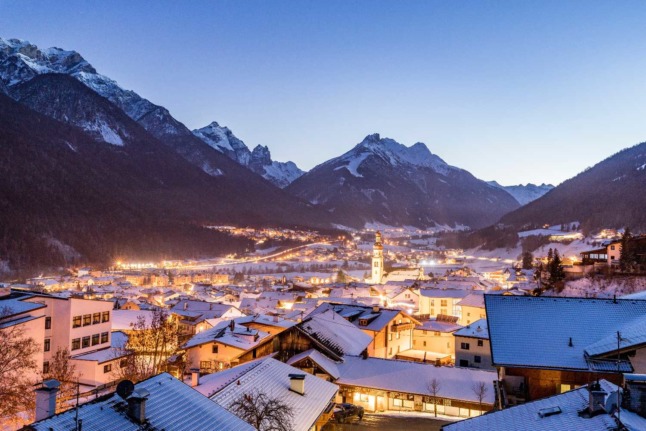Will my Austrian residence permit be valid after I retire?

If you have a residence permit for Austria to work, there’s a good chance you’ll have to apply for another type of visa if you want to stay here to retire.
If you’re approaching retirement age in Austria and think you might want to stay, you might have a tough bureaucratic decision to make If you’re a non-EU national.
That’s because most residence permits issued in Austria are given out for very specific purposes, and limit what you’re able to do on them.
In a work permit’s case, once the job that’s linked to your residence permit ends, you typically have to quickly find another one that both satisfies a minimum salary threshold and is linked to the field that you have work experience and training in. Otherwise, you’ll usually have to leave Austria.
Likewise, if you’re in Austria on a temporary residence permit and you retire, you’re not doing the job you received a residence permit for and will thus have to leave Austria – unless you apply for a different permit or status that will allow you to stay. Your eligibility to stay in Austria won’t simply carry over from your work – or other type of permit – into retirement.
The good news is there’s ways you can stay. Although there may be some other ways of staying – for example if you’re married to an Austrian or other EU national – in the vast majority of cases, you can solve this issue in one of three main ways.
READ ALSO: Five reasons to retire in Austria
Solution one - a retirement visa
You can apply to settle in Austria for your retirement on a special residence permit typically called a “settlement permit – gainful employment excluded”.
As the name suggests, you won’t be able to work anymore on this visa. It is, however, the most popular residence permit in Austria for non-EU retirees.
To get it, you’ll have to prove that you can support yourself in Austria during your retirement. An easy way to do this is to prove your entitlement to receive pension payments – which you may already be eligible for depending on how long you’ve worked in Austria and whether countries you’ve previously worked in have social security agreements with Austria. Passive income from investments or letting out a property you own – to use two examples – would also qualify you.

Austria has plenty to offer a prospective retiree. Photo by Matthias Betz on Unsplash
You’ll also need to prove that you have health insurance and a residence large enough for you and your family, as well as typically A1 German – the most basic level. However, if you’re living in Austria already, these shouldn’t be big problems.
Although not being able to work on this permit is a given, there are still two major drawbacks to this visa. For one, it’s only valid for a year at a time – leaving you having to reapply. The other downside is that a limited number of these permits are given out in Austria each year, leaving open the possibility that you won’t be granted one simply because there’s too many requests for one.
That’s why if you live in Austria already, you may want to think about one of the other solutions.
COMPARED: How to get a visa to settle in either Germany or Austria for retirement
Solution two – permanent residence
An elegant solution to avoiding the uncertainly of the retirement visa is to apply for permanent residence in Austria.
If you already hold permanent residence in Austria before you retire, it will remain valid after you retire.
It also gives you unrestricted access to the Austrian labour market, such that you can apply for jobs that aren’t necessarily associated with your previous training or work experience. You won’t need to satisfy a minimum salary threshold and you won’t need to pass a labour market test to apply for work anymore.
If you’re eligible for permanent residence – or you’re close – it may be better to simply apply before you retire, to guarantee your right to stay in Austria afterward. You can also apply for permanent residence if you’re on a retirement permit – provided you’ve been in Austria for the requisite five years.
Permanent residence gives you a lot more rights than a retirement visa and avoids a lot of bureaucracy and uncertainty in the future – so it’s probably your best bet if you’re eligible or become eligible. You can even leave Austria for up to five years and not lose your rights.
It does, however, require you to demonstrate that you have German skills of at least a B1 level.
EXPLAINED: Do you pension contributions abroad count in Austria?
Solution three – citizenship
Although permanent residence should take care of most of your worries about your right to settle in Austria during retirement, you can always also go for citizenship – if you’re eligible.
Similar to permanent residence, you’ll need B1 German. However, you also typically need to be resident in Austria for 10 years and be willing to give up your other citizenship – unless you’ve discovered a route through descent or restoration of citizenship by being descended from victims of the Nazis.
If you go for citizenship, you can vote in elections and can leave Austria for an unlimited period of time and always maintain the right to return.
READ ALSO: What’s the difference between permanent residency and citizenship in Austria?
Comments
See Also
If you’re approaching retirement age in Austria and think you might want to stay, you might have a tough bureaucratic decision to make If you’re a non-EU national.
That’s because most residence permits issued in Austria are given out for very specific purposes, and limit what you’re able to do on them.
In a work permit’s case, once the job that’s linked to your residence permit ends, you typically have to quickly find another one that both satisfies a minimum salary threshold and is linked to the field that you have work experience and training in. Otherwise, you’ll usually have to leave Austria.
Likewise, if you’re in Austria on a temporary residence permit and you retire, you’re not doing the job you received a residence permit for and will thus have to leave Austria – unless you apply for a different permit or status that will allow you to stay. Your eligibility to stay in Austria won’t simply carry over from your work – or other type of permit – into retirement.
The good news is there’s ways you can stay. Although there may be some other ways of staying – for example if you’re married to an Austrian or other EU national – in the vast majority of cases, you can solve this issue in one of three main ways.
READ ALSO: Five reasons to retire in Austria
Solution one - a retirement visa
You can apply to settle in Austria for your retirement on a special residence permit typically called a “settlement permit – gainful employment excluded”.
As the name suggests, you won’t be able to work anymore on this visa. It is, however, the most popular residence permit in Austria for non-EU retirees.
To get it, you’ll have to prove that you can support yourself in Austria during your retirement. An easy way to do this is to prove your entitlement to receive pension payments – which you may already be eligible for depending on how long you’ve worked in Austria and whether countries you’ve previously worked in have social security agreements with Austria. Passive income from investments or letting out a property you own – to use two examples – would also qualify you.

You’ll also need to prove that you have health insurance and a residence large enough for you and your family, as well as typically A1 German – the most basic level. However, if you’re living in Austria already, these shouldn’t be big problems.
Although not being able to work on this permit is a given, there are still two major drawbacks to this visa. For one, it’s only valid for a year at a time – leaving you having to reapply. The other downside is that a limited number of these permits are given out in Austria each year, leaving open the possibility that you won’t be granted one simply because there’s too many requests for one.
That’s why if you live in Austria already, you may want to think about one of the other solutions.
COMPARED: How to get a visa to settle in either Germany or Austria for retirement
Solution two – permanent residence
An elegant solution to avoiding the uncertainly of the retirement visa is to apply for permanent residence in Austria.
If you already hold permanent residence in Austria before you retire, it will remain valid after you retire.
It also gives you unrestricted access to the Austrian labour market, such that you can apply for jobs that aren’t necessarily associated with your previous training or work experience. You won’t need to satisfy a minimum salary threshold and you won’t need to pass a labour market test to apply for work anymore.
If you’re eligible for permanent residence – or you’re close – it may be better to simply apply before you retire, to guarantee your right to stay in Austria afterward. You can also apply for permanent residence if you’re on a retirement permit – provided you’ve been in Austria for the requisite five years.
Permanent residence gives you a lot more rights than a retirement visa and avoids a lot of bureaucracy and uncertainty in the future – so it’s probably your best bet if you’re eligible or become eligible. You can even leave Austria for up to five years and not lose your rights.
It does, however, require you to demonstrate that you have German skills of at least a B1 level.
EXPLAINED: Do you pension contributions abroad count in Austria?
Solution three – citizenship
Although permanent residence should take care of most of your worries about your right to settle in Austria during retirement, you can always also go for citizenship – if you’re eligible.
Similar to permanent residence, you’ll need B1 German. However, you also typically need to be resident in Austria for 10 years and be willing to give up your other citizenship – unless you’ve discovered a route through descent or restoration of citizenship by being descended from victims of the Nazis.
If you go for citizenship, you can vote in elections and can leave Austria for an unlimited period of time and always maintain the right to return.
READ ALSO: What’s the difference between permanent residency and citizenship in Austria?
Join the conversation in our comments section below. Share your own views and experience and if you have a question or suggestion for our journalists then email us at [email protected].
Please keep comments civil, constructive and on topic – and make sure to read our terms of use before getting involved.
Please log in here to leave a comment.